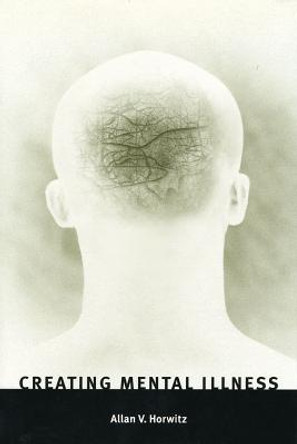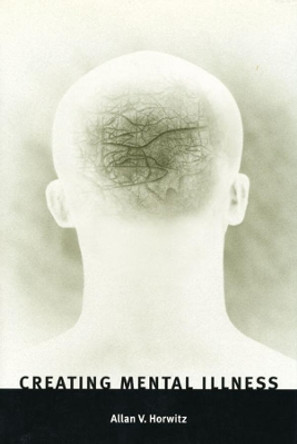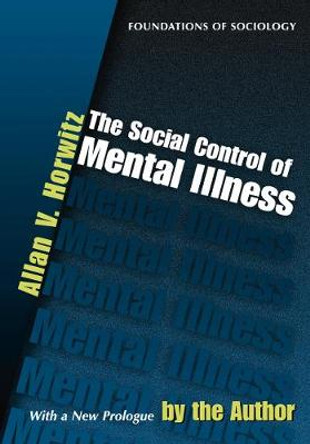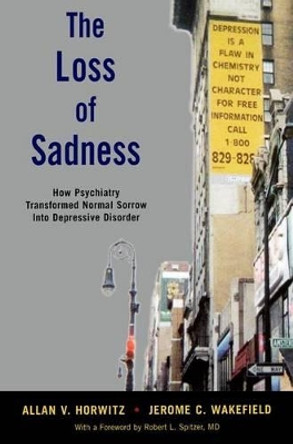Anxiety is ubiquitous in everyday life and avoiding sources of anxiety is often at the core of our everyday choices and can even shape our life plans. But why are we all so anxious, when is this normal uniqueness as opposed to a diagnosable anxiety disorder, and why have anxiety disorders become more prevalent than ever? In All We Have to Fear, Horwitz and Wakefield argue that psychiatry has largely generated this epidemic by inflating our socially inconvenient, yet natural, fears into psychiatric disorders and ignoring our biologically designed natures, thus allowing the overdiagnosis of anxiety disorders and facilitating a culture of medicalization. The result is a society that is afraid of natural, biologically designed feelings of fear and, overall, anxious about feeling anxious. All We Have to Fear is a groundbreaking and fresh look at how to distinguish between anxiety conditions that are mental disorders, those that are natural reactions to threats, and those that are natural products of evolution. Building on the new science of evolutionary psychology, Horwitz and Wakefield demonstrate a mismatch between our basic biological natures and the environment that we have created for ourselves. Some of our natural anxiety is born from situations and objects that posed serious risks during prehistory, but that are no longer usually dangerous, for example, a city dweller who is terrified of snakes. This mismatch generates normal anxiety when there is, in fact, no real danger. Evolutionary psychology shows that beyond the context in which the symptoms occur, our biological heritage as a species must be considered in any psychiatric diagnosis as we are otherwise bewildered by our own primitive fears and beset by diffuse anxieties that seem to have no function in our lives. All We Have to Fear argues that only by paying attention to our evolutionary shaping can we understand ourselves, our fears, what is normal versus disordered in what we fear, and make informed choices about how to approach these fears. The mismatch between our natures, environment, and our fears is not pathological, but rather reveals the forces that shaped us and provides an "emotional time machine," shedding light on who we were when we were shaped as a species, and thus, allowing us more insight into who we are today.
About the AuthorAllan V. Horwitz is Board of Governors Professor of Sociology at Rutgers University. He is the author of numerous articles and books on various aspects of the sociology of mental illness including The Social Control of Mental Illness, Creating Mental Illness,, and, with Jerome C. Wakefield, The Loss of Sadness (Oxford University Press). He is the recipient of the Pearlin Award for lifetime Achievement in the Sociology of Mental Health from the American Sociological Association. Jerome C. Wakefield is University Professor and Professor of Social Work at New York University. His previous faculty appointments were at the University of Chicago, Columbia University, and Rutgers University. Holding doctorates in both Social Work and Philosophy, he has published many articles on the conceptual foundations of psychiatry, especially on the concept of mental disorder and related topics at the intersection of philosophy and the mental health professions.
Reviews'... does an excellent job at explaining the history and calling into question the present state of anxiety diagnosing.' * Sacramento Book Review *
This is a well-written critique of different ways of classifying anxiety disorders. I particularly liked the historical review of thinking about anxiety, spanning classical authors, the age of neurasthenia and Freud. * The British Journal of Psychiatry, Feb 2013 *
This book poses a number of challenging conceptual and practical questions for psychiatry and will be of interest to clinicians and researchers al1ke. * The Psychologist, March 2013 *
An interesting an thought-provoking perspective. It is recommended to anyone who is interested in the foundational issues of psychiatric diagnosis. * Journal of the Norwegian Medical Society *
Book InformationISBN 9780199793754
Author Allan V. Horwitz, PhDFormat Hardback
Page Count 320
Imprint Oxford University Press IncPublisher Oxford University Press Inc
Weight(grams) 578g
Dimensions(mm) 237mm * 161mm * 20mm










